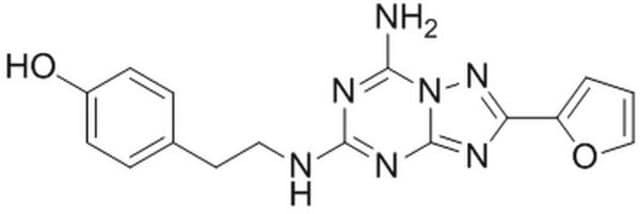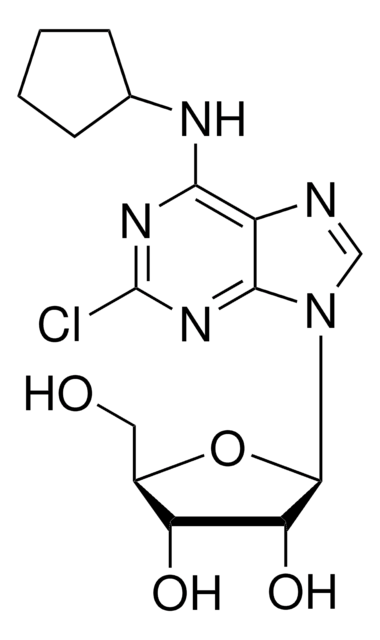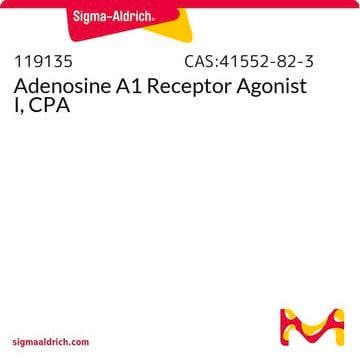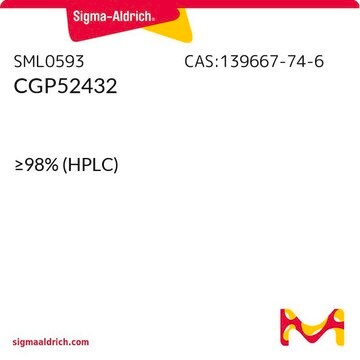C101
8-Cyclopentyl-1,3-dipropylxanthine
solid
Sinónimos:
1,3-Dipropyl-8-cyclopentylxanthine, DPCPX, PD 116,948
About This Item
Productos recomendados
form
solid
Quality Level
color
white
solubility
DMSO: >10 mg/mL
0.1 M NaOH: 2 mg/mL
ethanol: 4 mg/mL
H2O: insoluble
εmax
14,800 at 276 nm in ethanol
SMILES string
CCCN1C(=O)N(CCC)c2nc([nH]c2C1=O)C3CCCC3
InChI
1S/C16H24N4O2/c1-3-9-19-14-12(15(21)20(10-4-2)16(19)22)17-13(18-14)11-7-5-6-8-11/h11H,3-10H2,1-2H3,(H,17,18)
InChI key
FFBDFADSZUINTG-UHFFFAOYSA-N
Gene Information
human ... ADORA1(134) , ADORA2A(135) , ADORA2B(136) , ADORA3(140)
rat ... Adora1(29290) , Adora2a(25369) , Adora2b(29316) , Adora3(25370)
¿Está buscando productos similares? Visita Guía de comparación de productos
Application
Biochem/physiol Actions
Features and Benefits
signalword
Warning
hcodes
Hazard Classifications
Eye Irrit. 2 - Skin Irrit. 2 - STOT SE 3
target_organs
Respiratory system
Storage Class
11 - Combustible Solids
wgk_germany
WGK 3
flash_point_f
Not applicable
flash_point_c
Not applicable
ppe
dust mask type N95 (US), Eyeshields, Gloves
Elija entre una de las versiones más recientes:
Certificados de análisis (COA)
¿No ve la versión correcta?
Si necesita una versión concreta, puede buscar un certificado específico por el número de lote.
¿Ya tiene este producto?
Encuentre la documentación para los productos que ha comprado recientemente en la Biblioteca de documentos.
Los clientes también vieron
Nuestro equipo de científicos tiene experiencia en todas las áreas de investigación: Ciencias de la vida, Ciencia de los materiales, Síntesis química, Cromatografía, Analítica y muchas otras.
Póngase en contacto con el Servicio técnico













